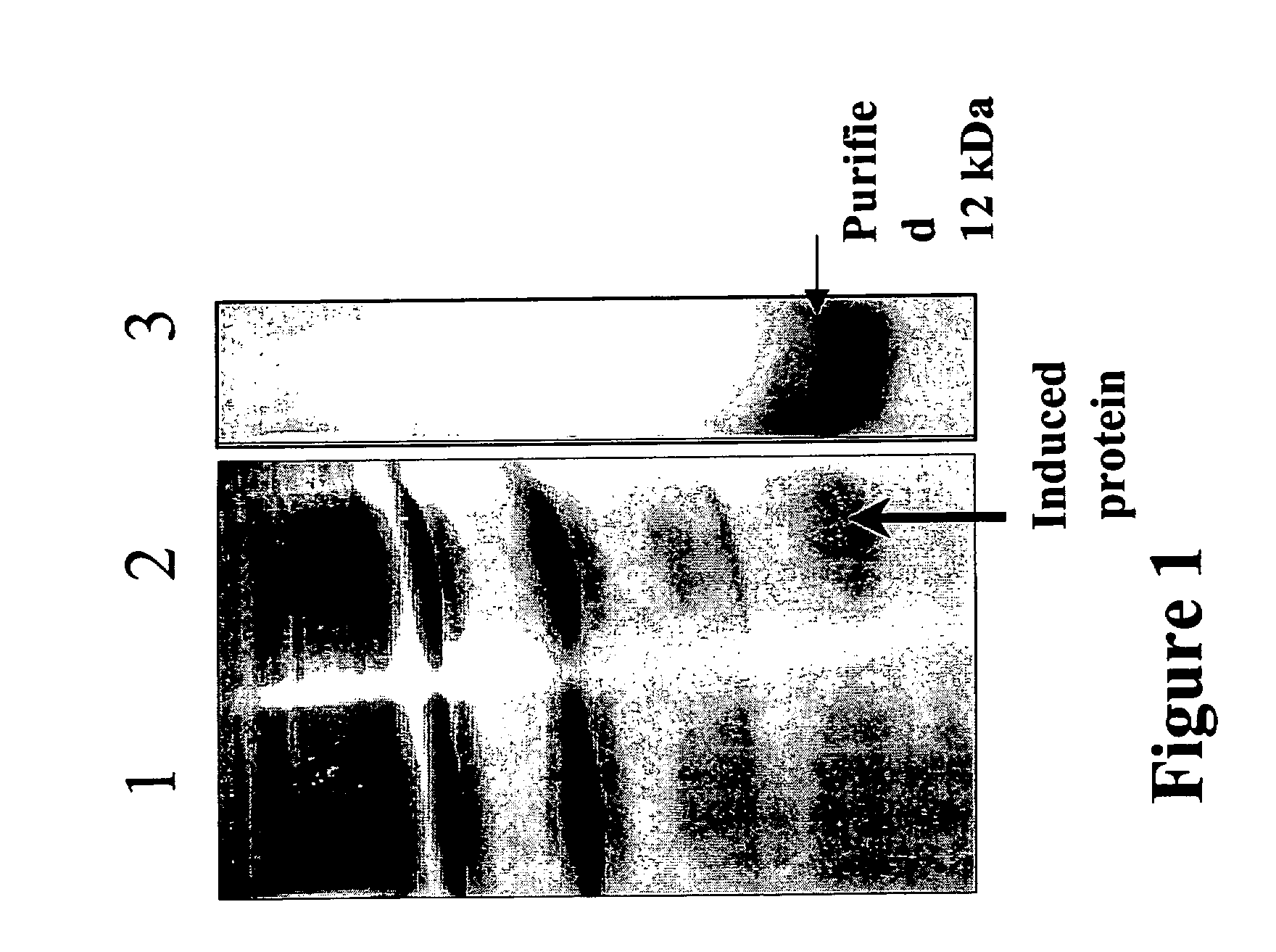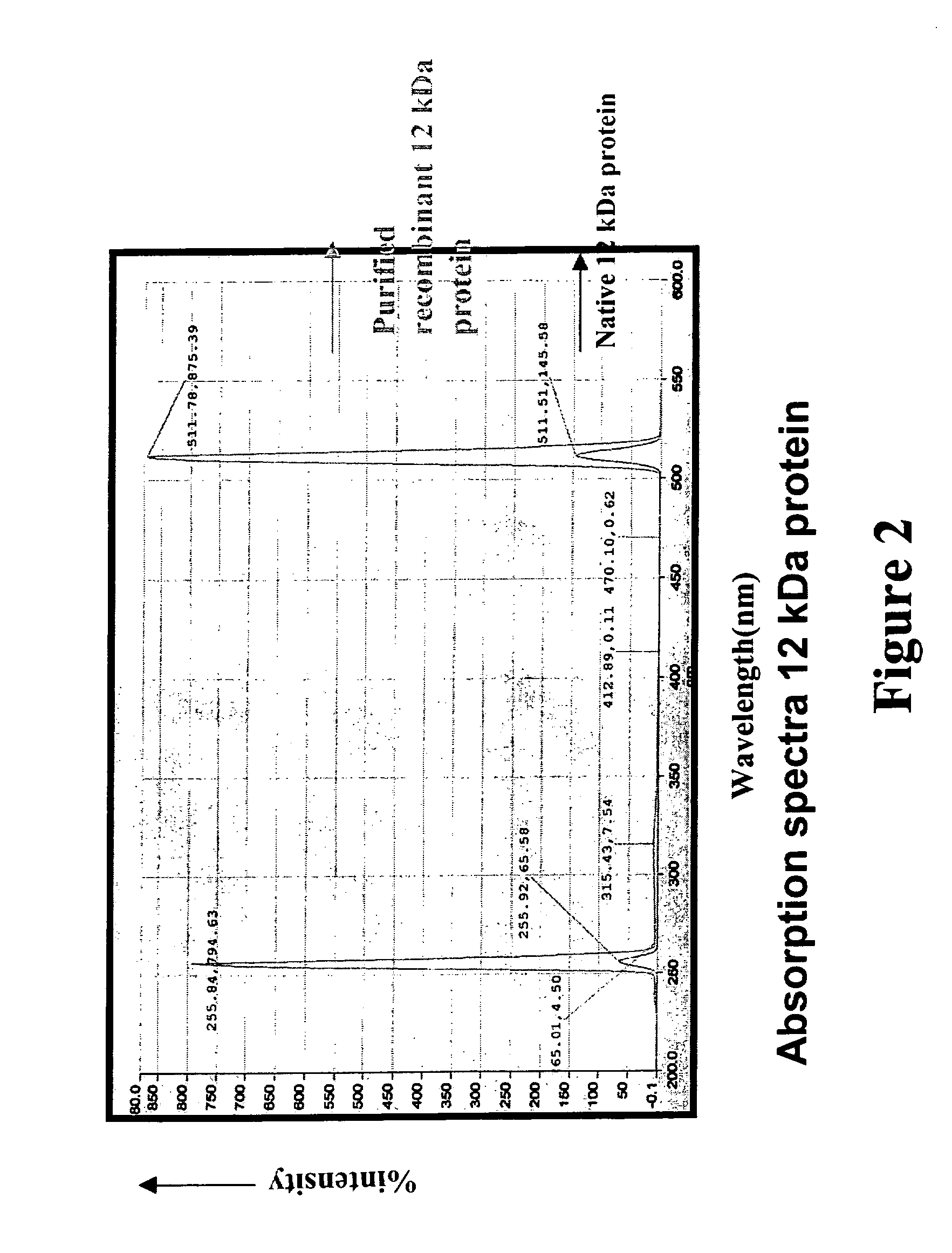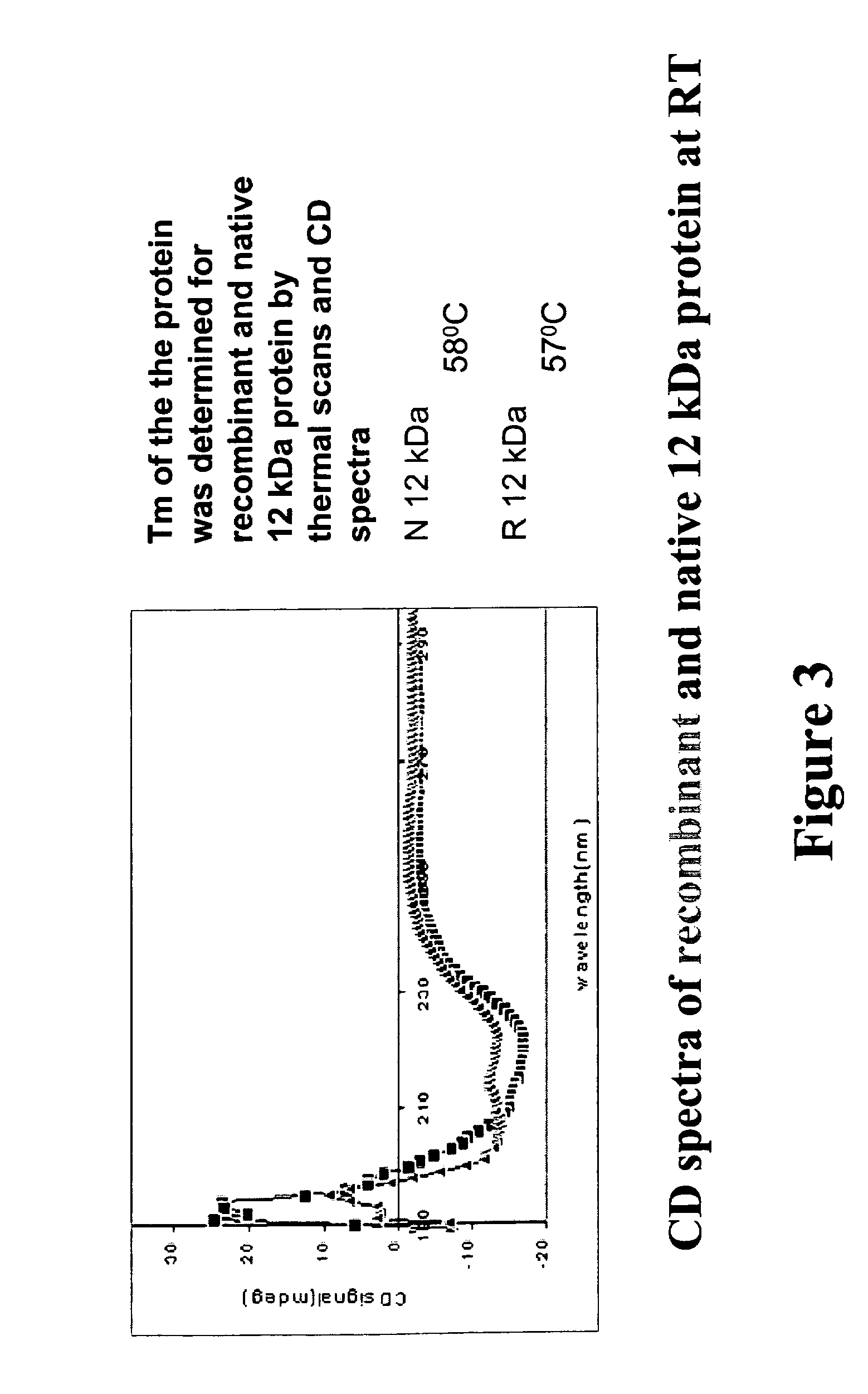Recombinant 12-KDA protein useful for the detection of respiratory allergies
a technology of respiratory allergies and recombinant proteins, which is applied in the preparation of depsipeptides, peptide preparation methods, plant/algae/fungi/lichens ingredients, etc., can solve the problems of inflammatory and other allergic reactions, add complexities to the diagnosis of fungal allergies, etc., and achieve the effect of reducing the number of pricks and raising ige levels
- Summary
- Abstract
- Description
- Claims
- Application Information
AI Technical Summary
Benefits of technology
Problems solved by technology
Method used
Image
Examples
example 1
Total RNA Isolation
[0072] One hundred mg of 4 day old CL spore mycelium mass was crushed under liquid nitrogen to obtain a fine paste. Added 1 ml of TRI zol reagent and crushed again. The paste was allowed to thaw at RT and 0.2 ml of chloroform was added to it. After gentle shaking, it was incubated for 3 m at RT and centrifuged at 12000 rpm for 15 m at 4° C. The upper aqueous layer was separated and 0.5 ml isopropanol was added and kept at −20° C. for overnight. It was centrifuged at 12000 rpm at 4° C. The pellet washed with 75% ethanol followed by centrifugation at 7500 rpm at 4° C. The pellet obtained was air dried and dissolved in 0.5% SDS. The quality of total RNA was checked on formaldehyde gel.
example 2
mRNA Isolation
[0073] From purified total RNA, double oligo (dT) selection was performed to obtain poly (A) mRNA for cDNA library construction. The concentration of total RNA was adjusted to 0.55 μg / μl with DEPC treated DW and the volume was made upto 640 μl. The oligo dT washed with 1.5 ml washing buffer 1 (supplied with the kit). The salt concentration of the RNA sample was adjusted to 0.5 M by adding 64 μl of 5 M NaCl and was allowed to hybridize at RT for 10 m.
[0074] The unbound RNA was expelled and the column washed with 1.5 ml of washing buffer 1 followed by washing with buffer 2 (supplied with the kit). The poly(A) mRNA was eluted with 0.5 ml preheated (65° C.) DEPC treated DW. To the eluted 500 μl mRNA, 2 μl of 50 μg / ml glycogen, 50 μl of 7.5 M ammonium acetate and 1000 μl of chilled ethanol were added. Precipitation of RNA was carried out at −20° C. for overnight. The sample was centrifuged at 3000 rpm for 30 m at 4° C. The pellet obtained washed with 75% ethanol and centr...
example 3
Construction of cDNA Library
[0075] The cDNA library was synthesized using Stratagene ZAP-cDNA Gigapack III Gold cloning kit. It uses a hybrid oligo dT linker primer that contains a Xho I restriction site. Messenger RNA is primed in the first strand synthesis with the linker primer. All the reagents used were provided by commercial cDNA synthesis kit. The various steps involved in the construction of the library are described below:
[0076] First strand cDNA: Messenger RNA was used as template to synthesize first strand cDNA. The reaction mixture contained 5 μg mRNA, 5 μl of 10× first strand buffer, 3 μl of 10 mM first strand methyl nucleotide mixture, 2 μl of linker primer (1.4 μg / μl) and 1 μl of RNase block (Ribonuclease inhibitor 400 U / μl) in 50 μl volume. The reaction mixture was incubated for 10 m at RT and 1.5 μl of reverse transcriptase (Moloney murine Leukemia virus reverse transcriptase, 50 U / μl) was added. The reaction was carried out at 37° C. for 1 h.
[0077] Second strand...
PUM
| Property | Measurement | Unit |
|---|---|---|
| Nanoscale particle size | aaaaa | aaaaa |
| Nanoscale particle size | aaaaa | aaaaa |
| Nanoscale particle size | aaaaa | aaaaa |
Abstract
Description
Claims
Application Information
 Login to View More
Login to View More - R&D
- Intellectual Property
- Life Sciences
- Materials
- Tech Scout
- Unparalleled Data Quality
- Higher Quality Content
- 60% Fewer Hallucinations
Browse by: Latest US Patents, China's latest patents, Technical Efficacy Thesaurus, Application Domain, Technology Topic, Popular Technical Reports.
© 2025 PatSnap. All rights reserved.Legal|Privacy policy|Modern Slavery Act Transparency Statement|Sitemap|About US| Contact US: help@patsnap.com



